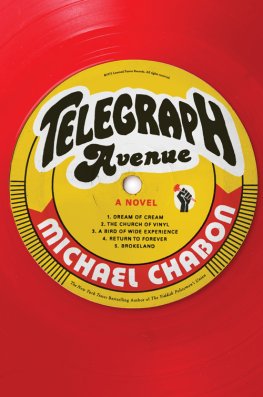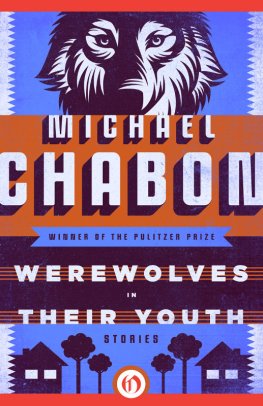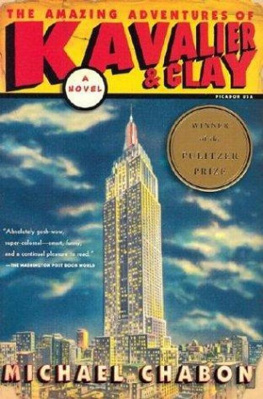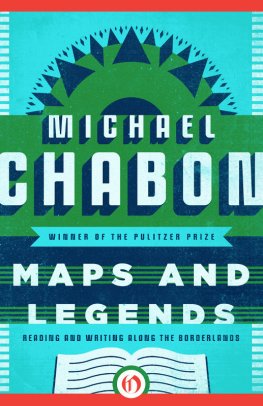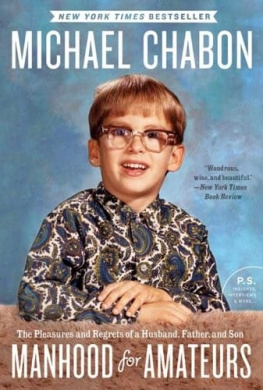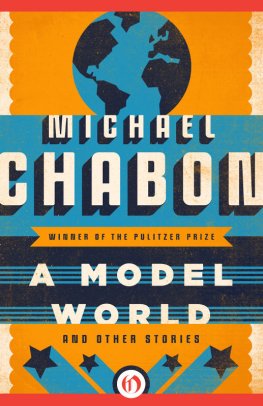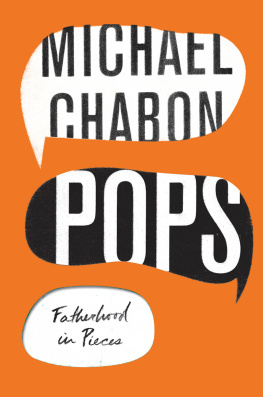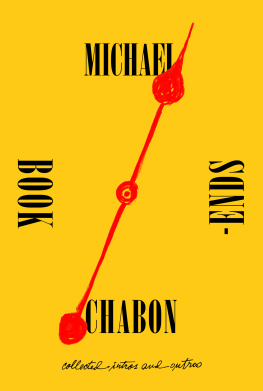Michael Chabon - The Mysteries of Pittsburgh
Here you can read online Michael Chabon - The Mysteries of Pittsburgh full text of the book (entire story) in english for free. Download pdf and epub, get meaning, cover and reviews about this ebook. year: 1989, publisher: Harper Perennial, genre: Art. Description of the work, (preface) as well as reviews are available. Best literature library LitArk.com created for fans of good reading and offers a wide selection of genres:
Romance novel
Science fiction
Adventure
Detective
Science
History
Home and family
Prose
Art
Politics
Computer
Non-fiction
Religion
Business
Children
Humor
Choose a favorite category and find really read worthwhile books. Enjoy immersion in the world of imagination, feel the emotions of the characters or learn something new for yourself, make an fascinating discovery.

- Book:The Mysteries of Pittsburgh
- Author:
- Publisher:Harper Perennial
- Genre:
- Year:1989
- Rating:3 / 5
- Favourites:Add to favourites
- Your mark:
- 60
- 1
- 2
- 3
- 4
- 5
The Mysteries of Pittsburgh: summary, description and annotation
We offer to read an annotation, description, summary or preface (depends on what the author of the book "The Mysteries of Pittsburgh" wrote himself). If you haven't found the necessary information about the book — write in the comments, we will try to find it.
The Mysteries of Pittsburgh — read online for free the complete book (whole text) full work
Below is the text of the book, divided by pages. System saving the place of the last page read, allows you to conveniently read the book "The Mysteries of Pittsburgh" online for free, without having to search again every time where you left off. Put a bookmark, and you can go to the page where you finished reading at any time.
Font size:
Interval:
Bookmark:

A story of adolescence and of the dawning realization that childhood is a country you can never return to.

To Lollie
We have shared out like thieves the amazing treasure of nights and days
J. L. BORGES
At the beginning of the summer I had lunch with my father, the gangster, who was in town for the weekend to transact some of his vague business. We'd just come to the end of a period of silence and ill will-a year I'd spent in love with and in the same apartment as an odd, fragile girl whom he had loathed, on sight, with a frankness and a fury that were not at all like him. But Claire had moved out the month before. Neither my father nor I knew what to do with our new freedom.
"I saw Lenny Stern this morning," he said. "He asked after you. You remember your Uncle Lenny."
"Sure," I said, and I thought for a second about Uncle Lenny, juggling three sandwich halves in the back room of his five-and-dime in the Hill District a million years ago.
I was nervous and drank more than I ate; my father carefully dispatched his steak. Then he asked me what my plans were for the summer, and in the flush of some strong emotion or other I said, more or less: It's the beginning of the summer and I'm standing in the lobby of a thousand-story grand hotel, where a bank of elevators a mile long and an endless red row of monkey attendants in gold braid wait to carry me up, up, up through the suites of moguls, of spies, and of starlets, to rush me straight to the zeppelin mooring at the art deco summit, where they keep the huge dirigible of August tied up and bobbing in the high winds. On the way to the shining needle at the top I will wear a lot of neckties, I will buy five or six works of genius on 45 rpm, and perhaps too many times I will find myself looking at the snapped spine of a lemon wedge at the bottom of a drink. I said, "I anticipate a coming season of dilated time and of women all in disarray."
My father told me that I was overwrought and that Claire had had an unfortunate influence on my speech, but something in his face said that he understood. That night he flew back to Washington, and the next day, for the first time in years, I looked in the newspaper for some lurid record of the effect of his visit, but of course there was none. He wasn't that kind of gangster.
Claire had moved out on the thirtieth of April, taking with her all of the Joni Mitchell and the complete soundtrack recording of the dialogue from Zeffirelli's Romeo and Juliet, a four-record set, which she knew by heart. At some point toward the sexless and conversationless finale of Art and Claire, I had informed her that my father said she suffered from dementia praecox. My father's influence upon me was strong, and I believed this. I later told people that I had lived with a crazy woman, and also that I had had enough of Romeo and Juliet.
The last term in my last year of college sputtered out in a week-long fusillade of examinations and sentimental alcoholic conferences with professors whom I knew I would not really miss, even as I shook their hands and bought them beers. There was, however, a last paper on Freud's letters to Wilhelm Fliess, for which I realized I would have to make one exasperating last visit to the library, the dead core of my education, the white, silent kernel of every empty Sunday I had spent trying to ravish the faint charms of the study of economics, my sad and cynical major.
So one day at the beginning of June I came around the concrete corner that gave way to the marbleized steps of the library. Walking the length of brown ground-floor windows, I looked into them, at the reflection of my walk, my loafers, my mess of hair. Then I felt guilty, because at our lunch my father, the amateur psychologist, had called me a "devout narcissist" and had said he worried that I might be "doomed to terminal adolescence." I looked away.
There were very few students using the building this late in the term, which was officially over. A few pink-eyed and unshaven pages loitered behind the big checkout counter, staring out at the brown sun through the huge tinted windows. I clicked loudly in my loafers across the tile floor. As I called for the elevator to the Freud section, a girl looked up. She was in a window; there was an aqua ribbon in her hair. The window was a kind of grille, as in a bank, at the far end of the corridor in which I stood waiting for the elevator, and the girl in the window held a book in one hand and a thin strip of wire in the other. We looked at each other for perhaps three seconds, then I turned back to face the suddenly illuminated red Up arrow, the muscles in my neck warming and tightening. As I stepped into the car I heard her say four distinct and strange words to someone with her, there behind the bars, whom I hadn't seen.
"That was him, Sandy," she said.
I was sure of it.
Freud's letters to Fliess make much of the near-cosmic interaction of the human nose with matters of sexual health. Work on my paper, therefore, proved to be relatively entertaining, and I wrote for a long time, stopping rarely to drink from the humming fountain or even simply to look up from my hilarious scholarship. Late in the long afternoon I saw a young man looking at me from behind his book. Its title was in Spanish and on its cover there was a bloody painting of a knife, a woman in a mantilla, and a half-undressed brown strongman. I smiled at him and lifted an eyebrow in skeptical salute to what must be a pretty racy book. It looked as though he might keep his eyes on me awhile longer, but I told myself that one of those kinds of exchanges a day, and that with a woman, was excitement enough, and I dropped back to the nose, nexus of all human desire.
When I put down my pencil it was almost eight o'clock. I stood up with a habitual silent "Oy" and went over to one of the tall, narrow windows that looked out over the plaza below. The sky was whitish brown in the twilight through the smoked glass. Small groups of kids called and ran on the concrete down below, obviously heading somewhere, in a way that made me think of getting something to eat. At the far left, toward the front of the building, I saw a flashing light. I gathered up my books and papers and noticed that the Spanish Potboiler Guy had left. Where he'd been sitting there were a small empty can of pineapple juice and a little scrap of origami that was like a dog or a saxophone.
Going down in the elevator, I thought about the Girl Behind Bars, but at the ground floor everything was closed up, and an articulated wooden shutter had been pulled down behind the grille. There was one disheveled dramat type slumped behind the checkout counter now, and as I went clicking through the theft detectors he waved me away without looking up.
I stood feeling the air and smoking a nice cigarette for a little while, then heard the loud crack of police voices on radio and saw again that flashing light, off to the left. Little bunches of people were there, balanced between walking and sticking around. I walked over and came through the outer ring of people.
In the center of everything stood a young woman, her head slightly bowed, whispering. To her left a fallen cop with a cut on his face pulled himself to his knees and then tried to stand, gesturing with unconvincing menace toward a huge boy. To the girl's right, across the impromptu arena we formed, stood another cop, his arms struggling to enlace those of another huge boy, who swore at the policemen, at the girl, at his enraged twin who faced him, and at all of us who watched.
Font size:
Interval:
Bookmark:
Similar books «The Mysteries of Pittsburgh»
Look at similar books to The Mysteries of Pittsburgh. We have selected literature similar in name and meaning in the hope of providing readers with more options to find new, interesting, not yet read works.
Discussion, reviews of the book The Mysteries of Pittsburgh and just readers' own opinions. Leave your comments, write what you think about the work, its meaning or the main characters. Specify what exactly you liked and what you didn't like, and why you think so.

